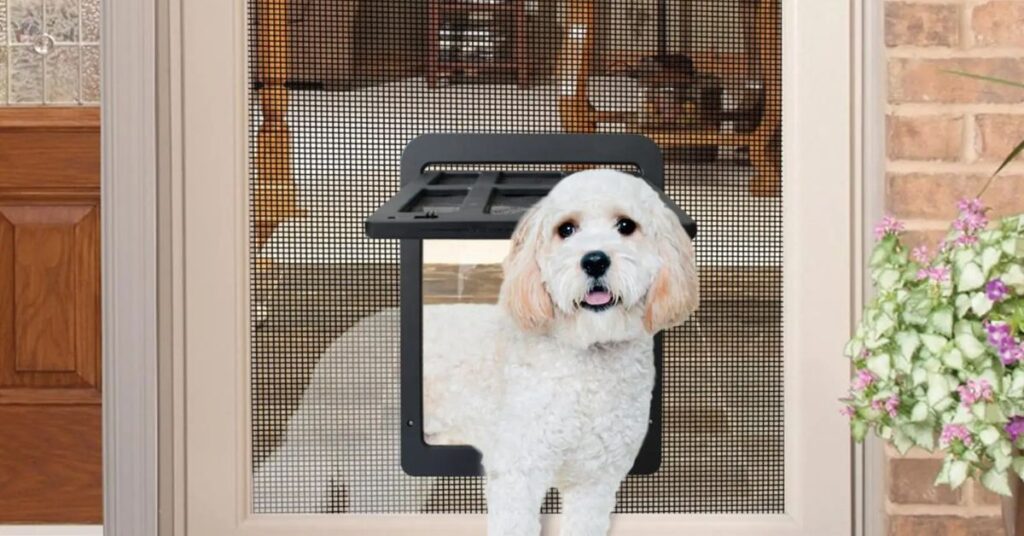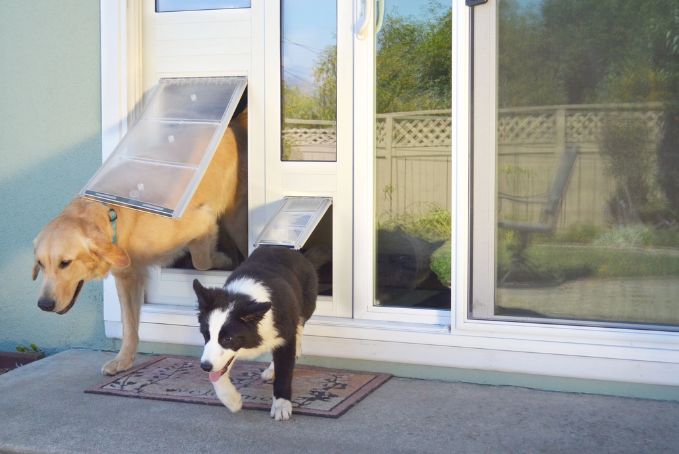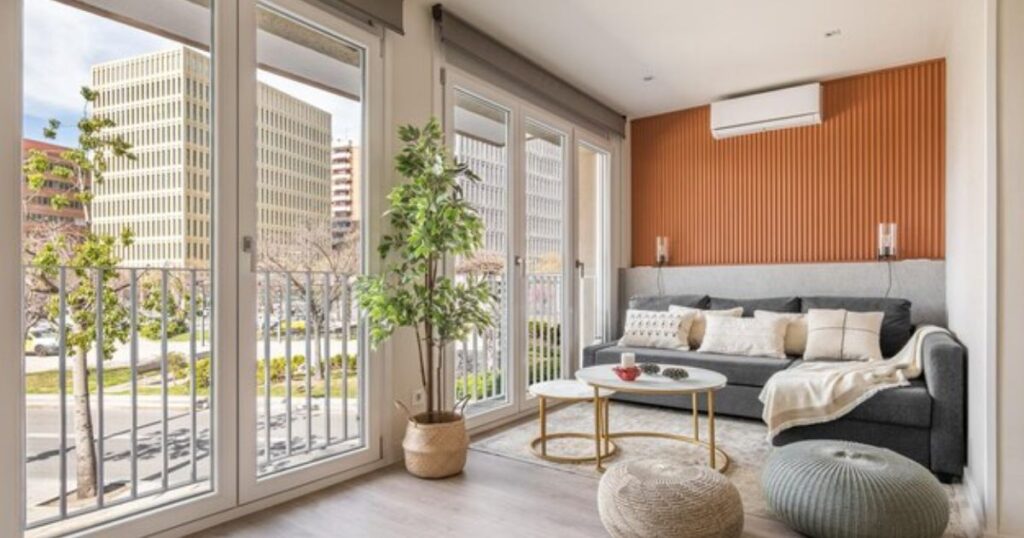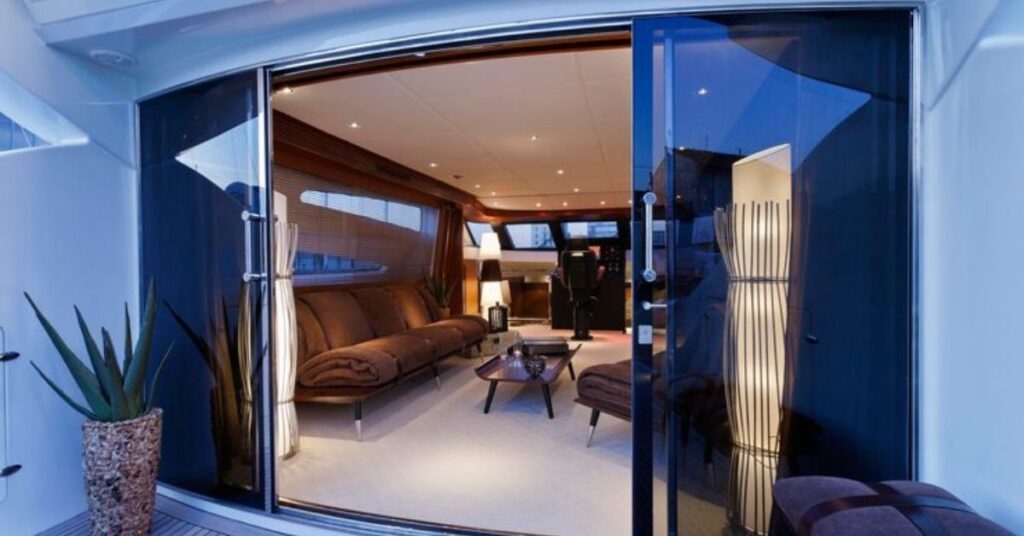In the field of home design, where sophistication intertwines with functionality, few advancements are as effortlessly exquisite as retractable screens. Especially in homes with pets, these pet-proof screens offer an entryway to fresh air and a sense of peace, provided you select the appropriate mesh that withstands both claws and teeth.
Conventional mesh quickly deteriorates when faced with inquisitive claws or determined paws. Immediate drawbacks include sagging, punctures, and unsightly tears. This is exactly where pet-proof screens come into play, engineered to endure the challenges posed by feline exploration and canine inquisitiveness.
Top Contenders: Which Mess Type Hold Up?
Vinyl-Coated Polyester (Pet Mesh): By far the most highly recommended material for households with pets, vinyl-coated polyester represents a significant advancement. It features a robust, thick weave that is resistant to both stretching and tearing. Many prominent brands refer to this simply as “Pets Screen.” Its durable construction makes it particularly suitable for retractable screens, where both flexibility and strength are essential.
The appeal of this material lies in its equilibrium; it is heavy-duty yet not inflexible. It permits air and light to flow through while effectively resisting both claws and teeth. Perfect for screen doors, patios, and porch enclosures, this mesh is an excellent investment for any pet owner.
Stainless Steel Mesh: For those in search of utmost durability, consider industrial-strength stainless steel mesh, which is the perfect answer. It is virtually impervious to even the most vigorous pet assaults. Although it lacks the softness and subtlety of polyester mesh, it compensates with its longevity. You will not encounter a tougher material.
Stainless steel screens are more frequently used in security applications, but astute pet owners are repurposing them for high-traffic doors and outdoor spaces. While it may be excessive for some, in homes where large dogs or determined chewers dominate, this mesh serves as a steadfast protector.
Pet Grilles or Barriers: Although not technically classified as mesh, pet grilles deserve mention. These are frameworks made of metal or plastic that attach over existing retractable screens, creating a physical barrier between your pet and the screen itself. When used alongside retractable screens, they can extend the lifespan of even standard mesh by preventing direct contact.
Aluminum Mesh with Heavy Gauge: Aluminum screen mesh featuring a thicker weave is another alternative, although it occupies a grey area between cost and durability. It can endure some pet activity but is prone to denting or warping over time. It is more resilient than fiberglass, yet not as pet-proof as vinyl-coated or stainless steel.
Retractable Screens: A Stylish Companion to Pet-Proofing
Modern architecture tends to favor minimalism, and retractable screens have swiftly gained popularity among both designers and homeowners. They retract discreetly when not in use, providing an elegant alternative to conventional fixed screens. When equipped with pet-proof screens, retractable models offer the perfect combination: a sleek appearance and the durability to withstand damage.
From patio enclosures to French doors, these screens enable you to maintain your indoor-outdoor flow without the need to replace torn mesh every few months. Some advanced retractable systems now feature mesh retention tracks, an additional safeguard that prevents the mesh from being pushed or scratched out of position. This enhanced structure bolsters the screen’s durability, making it an excellent choice for pets that enjoy leaning against or pawing at doors.
What to Consider When Choosing Your Mesh?
Durability is not the sole consideration. Here are several factors to evaluate before selecting your ideal mesh:
Visibility: Denser mesh can slightly obstruct views. Choose wisely based on the installation location.
Airflow: While stronger weaves can withstand more physical force, they may also hinder ventilation.
Ease of Cleaning: Certain materials are more resistant to pet hair and dirt than others.
Aesthetic Integration: Ensure that the screen harmonizes with your home’s existing design, particularly if you are installing retractable screens in prominent areas.
Way Forward
The era of having to replace damaged screens each season has come to an end. Whether you choose the strong durability of vinyl-coated polyester or the sheer strength of stainless steel, the answer is evident: not all screens are made the same. In households where pets dominate, pet-proof screens are not merely an indulgence, they are essential. Combining these sturdy materials with stylish retractable screens allows you to no longer have to choose between appearance and practicality. You can enjoy fresh air, unobstructed views, and peace of mind, all while your furry friends relish their favorite spots by the window, free from claws.
About the Author
This article was contributed by Saverio from SavClicks, a marketing agency helping home service pros like Breeze Screens to grow their business online.
FAQs
Q.1. What are pet-proof Screens?
Ans. Pet-proof screens are specially crafted screen meshes made from resilient materials such as vinyl-coated polyester or stainless steel. They are designed to endure clawing, chewing, and general wear inflicted by cats, dogs, and other pets while still allowing for airflow and visibility.
Q.2. How do Pet-Proof Screens differ from Standard Screens?
Ans. Standard screens are usually constructed from fiberglass or lightweight aluminum, which can easily tear when scratched or chewed. In contrast, pet-proof screens incorporate a thicker, more durable weave that resists damage. They are engineered to be tear-resistant, puncture-resistant, and long-lasting even in households with energetic pets.
Q.3. Are Pet-Proof Screens Suitable for Use in Retractable Screen Doors?
Ans. Certainly, numerous high-quality retractable screens are designed to incorporate pet-resistant mesh. This combination provides the functionality and aesthetic appeal of a retractable door, along with the additional strength required to keep pets safe and screens undamaged.








 Call Us
Call Us